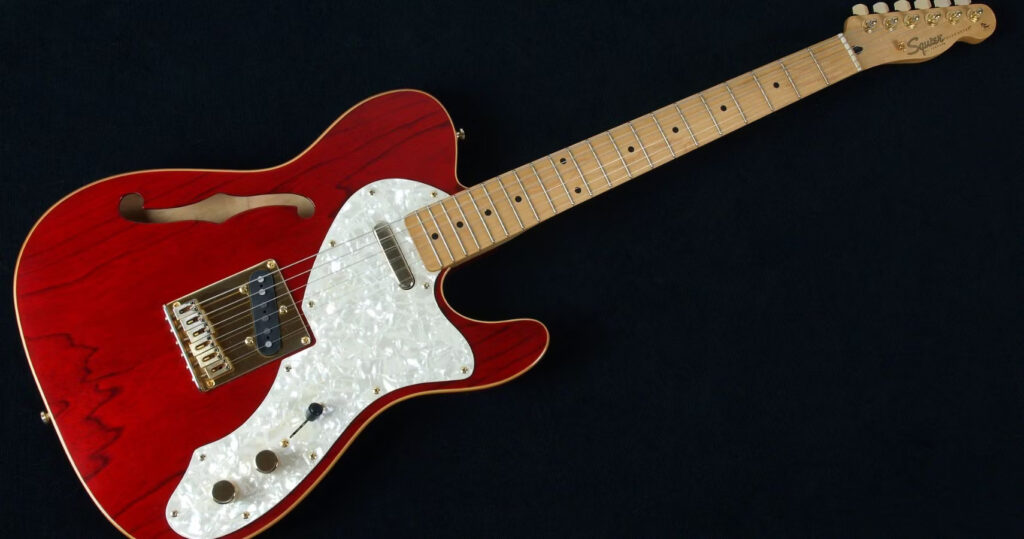Just after dawn on May 15, 2019, a dozen police officers showed up at a house in the quiet New Jersey neighborhood of Franklin Lakes. Holding a search warrant, they made a household member sit down and took away her phone. Other Woodstock, New York, and Brooklyn locations saw similar searches. Court records state that when it was all finished, the cops took four Apple MacBooks, 1,300 pages of “physical documents,” iPads, USB drives, and telephones along with files including financial information.
They left with the booty at the top of their list as well. Armed? Not at all. Medications? Not at all. The Eagles’ 1976 Hotel California lyrics (84 pages scrawled on legal pads) were even more clandestine and sought after, smelled like colitas. One creator believed they were stolen and wanted them back.


For almost as long as pop has been around, collectors and fans have paid for mementos that bring them closer to their stars. A Who fan paid $25 for a T-shirt owned by John Entwistle at what was probably the first rock auction in 1970. Other bidders also bid on two Grateful Dead stash bags, a tux worn by Leonard Cohen, a switchblade owned by Carlos Santana, and rose petals that Mick Jagger had thrown offstage at a 1969 New York performance. One can still bid three or four figures at one of the many music memorabilia auctions held many times a year and walk away with a pair of Freddie Mercury’s black leather stage shorts or Christmas cards signed by Genesis.

Kurt Cobain‘s guitar which he played on ‘MTV Unplugged’ in 1993 was sold for $6 million.
But in the last twenty years, purchasers with unimaginable wealth to burn have fundamentally changed that environment. If Kurt Cobain played a guitar on MTV Unplugged, would you pay six million? For the Help! guitar by John Lennon, how about $2.85 million? $1.8 million, perhaps, for the “Thriller” jacket worn by Michael Jackson? Not very likely, but others have. “There’s definitely a recognition that these pieces are as important to a certain collecting community as a Picasso is to other collectors — things that are extraordinary pieces of art,” states David Goodman, CEO of Julien’s Auctions, one of the biggest (and, supposedly, most respectable) entertainment auction houses. “You are so emotionally attached to these things that you want to live with, talk about, and love them.”
However, purchasers with unfathomably large sums of money to spend have drastically changed that environment during the last 20 years. Kurt Cobain played a guitar on MTV Unplugged; would you be willing to pay $6 million for it? A possible $2.85 million to support John Lennon? guitar? Or $1.8 million for the “Thriller” jacket owned by Michael Jackson? Though unlikely, people have. “It’s undeniably acknowledged that these items are as significant to a particular group of collectors as a Picasso is to other collectors — exceptional works of art,” remarks David Goodman, CEO of Julien’s Auctions, one of the top (and, based on reports, most respected) entertainment auction houses. “Because you are so emotionally attached to these things, you want to live with them, talk about them, and love them.”
Read More: Scientists Believe Our Solar System Hides a Massive Planet
You most likely won’t find anything related to the Eagles if you search through the listings for those auctions. Perhaps a signed promotional shot or poster, but nothing like the handwritten lyrics to songs by Bruce Springsteen, Prince, or the Beatles that have been going viral. Later in court, Eagles singer, composer, and drummer Don Henley said these early designs were “private and personal and not supposed to be seen by the public or anyone else.”
The scarcity of Eagles memorabilia has only increased the demand for die-hard fans, particularly for songs like “Hotel California.” According to Laura Woolley, head of consignments and appraisals at Julien’s, “I don’t think there’s a planet in the solar system where 13 original pages that show the evolution of one of the greatest-selling songs of all time doesn’t put them on a list of the bestselling things I’ve ever seen.” Music autograph expert Steve Cyrkin believes that sheets with rough lines like “You can check out any time you like/But you can never leave” may have brought in “millions of dollars,” despite the fact that he had not seen the lyric pads up close.
The majority of the pages containing early versions of Eagles songs never made it to market, perhaps due to the 2019 bust. However, the raid and the subsequent three men’s arrests paved the way for one of the most well-known music memorabilia trials in recent memory, if not ever. It also revealed more about the rich, disputed, and frequently ambiguous world of music collections. According to a community source, “authenticity is a fixation for some auction houses and dealers.” Some places don’t care as much about being genuine.
Additionally, some establishments appear eager to offer anything for which someone can provide a backstory that could seem absurd to others. This serves as both a gauge of income inequality and a window into the yearning for acceptance that exists in human nature. Shirley Mueller, M.D., author of Inside the Head of a Collector, claims that any collector’s collection of things “reflects us.” We want other people to feel the same way about it that we do. Additionally, it would be a damage to the collector’s psyche if they didn’t.
Perhaps it’s just another symbol of the world we live in. Why wouldn’t Eddie Van Halen’s guitar from the “Hot for Teacher” music video bring in close to $4 million? It’s not very logical, but then again, what is?
“DON, IS THIS REAL LIFE?An Eagles attorney sent Henley an email in March of 2012.
“Yeah, those are my worksheets,” Henley replied in a short email. “Purloined.”
Pages containing early drafts of “Hotel California” were unexpectedly up for auction on an online platform, as many people in the Eagles camp were horrified to discover that day. Trial testimony revealed that Ed Sanders was the supplier, despite his seeming unlikely status as a central character in one of the oddest stories surrounding rock memorabilia. (Sanders did not reply to Rolling Stone’s request for comment; he was never charged or called to testify during the trial.)
As much as the Eagles symbolized West Coast self-indulgence, Sanders, as a writer, poet, and member of the anarchist rock band the Fugs, personified the East Coast counterculture. Going to L.A. According to Henley’s account during the trial, Sanders met future Eagles founder Glenn Frey while doing research for a book on Charles Manson and the Tate-LaBianca murders. After the two grew close, Sanders sought refuge in Frey’s apartment from Manson family members he believed were after him. In case Mansonites broke in through the windows, Sanders ordered Frey and the others to stay up all night in shifts, armed with a weapon — a plan that Henley subsequently acknowledged was “a little wild.”
Years later, Frey asked Sanders to write an official Eagles biography. According to evidence given during the trial, the author signed a contract with the band in 1979, agreeing to provide him with “all material relating to the subject matter” and put him in touch with sources. Sanders conducted interviews with band members and even went on tour with them before submitting the first draft of This American Band: The Story of the Eagles, an 831-page manuscript.
Testimony indicated that Henley and a few others in the group felt that certain sections of the manuscript were, in Henley’s words, “cartoonish” and overflowing with out-of-date Beat terminology. That insight led Henley to take a step that probably came back to haunt him: he agreed to share lyric drafts with Sanders in order to provide light on the Eagles’ creative process (Frey, who co-wrote those songs with Henley, passed away in 2016). In addition, eight boxes’ worth of papers, recordings, and paperwork (along with an enigmatic pill) were provided by the band, crew, and management.
The book’s raw disclosures of the Eagles’ 1980 breakup ultimately caused the manuscript to languish and never find a publisher, making it the ultimate Eagles rare. Sanders kept the research materials in his Woodstock, New York, residence. After reading an article on Sanders’ extensive collection of writings and underground mimeographed zines, rare-books dealer Glenn Horowitz (who has placed the archives of Tom Wolfe, Bob Dylan, and others) and his associate John McWhinnie contacted Sanders in 2005, more than 20 years later. When Horowitz and McWhinnie visited Sanders’ house, they discovered numerous boxes of archives hidden in barns along with, as Horowitz remembers, “rabbits coming up to the door and deer wandering around in the backyard.”
The roughly 200 boxes of Sanders material included only a small portion of the cartons of Eagles book research, but Horowitz and McWhinnie paid $50,000 for numerous pads containing lyric drafts. This information was presented by the prosecution. Then things really started to get strange.Horowitz sold the Eagles pages to Ed Kosinski, proprietor of Gotta Have Rock and Roll, whose home was raided in 2019, and to Craig Inciardi, Rock & Roll Hall of Fame curator, after McWhinnie’s 2012 drowning. Horowitz was eager to get rid of his colleague’s inventory. (Rolling Stone and Inciardi used to share an office while he held that position.)
The lyrics to “Life in the Fast Lane,” another Hotel California song, appeared on Sotheby’s, followed by more sheets proving that Kosinski and Inciardi had shopped “Hotel California” to Sotheby’s and Christie’s. Henley eventually paid $8,500 for the pages after learning in 2012 that they were for sale on Kosinski’s website. He later testified that this was “the most practical and expedient way to get past the matter.” Henley was tired by then.
Regarding the idea of purchasing more lyric pads, he testified, “I already had been extorted once, and I was not going to do it again.” Inciardi and Kosinski, whose identities Henley did not yet know, offered to either continue selling what turned out to be nearly 100 pages in total and split the profits with Henley, or have him purchase them all for $90,000. That’s when Henley submitted the first of his two L.A. police reports. “I think there was theft on my property,” Henley stated in court. After meeting with Horowitz, Henley’s team eventually resorted to the Manhattan District Attorney, whose office carried out the raids on Sanders, Inciardi, and Kosinski’s residences.
Horowitz’s widow, author and playwright Tracey Jackson, believes her late husband was less of an Eagles pad fan than the late McWhinnie. She claims that John enjoyed rock and roll and the Beats. Glenn didn’t give a damn about the Eagles, but he was into the Beats, just like Ginsberg. For him, it held no significance. This is why everything about it was so unexpected and ridiculous. Glenn is not a music enthusiast.
This would not be Kosinski’s first encounter with legal troubles. In 2017, Madonna attempted to stop him from auctioning off 22 of her possessions, including a corset, underwear, hairbrush, and a breakup letter from Tupac Shakur, in court. She claimed that she had “never sold, gifted, or otherwise transferred title” to any of the items. He had sold many undeniable items, such as Elvis Presley’s Sun Sessions guitar for $1,320,000. The statute of limitations caused her case to be dismissed.
It would turn out, however, that the Eagles case would have far more dire consequences for Kosinski, Horowitz, and Inciardi. They were accused of changing their accounts about who owned the pads, ostensibly engaging in conspiracy, and criminal possession of stolen property, either jointly or separately. All three entered not guilty pleas to all allegations. This was unusual since the charges would be handled in a criminal court, which meant prison term for each. Sanders was not charged for reasons the DA’s office and the other defendants’ attorneys may not know.
In an interview with Rolling Stone, Horowitz—who, oddly, claims to have sold Henley a few rare books in the 1990s—admits that he didn’t fully realize the severity of the issue until the morning of their July 2022 arraignment. He, Kosinski, and Inciardi met at a Starbucks near the Manhattan Criminal Court building and went to the courthouse to get arrested, have their mug shots, and have their fingerprints. Horowitz remembers, “Then it dawned on me that they were not messing around.”
Ringo Starr’s drum kit from The Ed Sullivan Show sold for just over $2 million, an entire Starr drum kit sold for $2.1 million, a Lennon guitar from the early 1960s sold for $2.4 million, and the handwritten lyrics to Don McLean’s boomer epic “American Pie” sold for $1.2 million. Woolley describes Julien’s as “popping off” at that point. “And it has continued ever since.”
Even Australian microphone manufacturer Røde’s owner, Peter Freedman, acknowledges that the situation has become, to put it mildly, “unstable,” and he should know. Freedman sat down at a Julien’s auction in late 2020 as the Manhattan District Attorney’s office was assembling the case against Kosinski, Inciardi, and Horowitz. In particular, he was staring at a Martin acoustic guitar that Kurt Cobain had performed on MTV Unplugged for Nirvana. The guitar was originally in Frances Bean Cobain’s possession, but as part of her divorce settlement, her ex-husband ended up receiving it, demonstrating how arbitrary the world of collectibles can be. (Cobain handed his roommate in an L.A. recovery hospital a pair of patched jeans before he passed away; those would also be auctioned off.)
That axe was necessary for Freedman for a number of reasons. Since Nirvana’s music had carried him through some dark days in the 1990s, he reasoned that the attention he would get would help raise awareness of a cause close to his heart: the struggles musicians faced when their country was under lockdown. “I felt like I had to buy this,” he says. “I estimated that it might get $2 million. And as you’re sitting there, the price suddenly rises to $6 million, which was the total amount Freedman spent for the instrument.
The Fender Mustang that Cobain is holding in the “Smells Like Teen Spirit” video was available by Julien’s two years later. After eleven billionaires placed bids, the list was reduced to three, one of whom hid in his toilet throughout the auction because he was too scared to inform his wife how much he could be spending. Jim Irsay, the owner of the Indianapolis Colts and a music collector who already had guitars by John Lennon, Jerry Garcia, and Bob Dylan, paid $4.5 million for what may have easily been worth a few hundred thousand dollars.
Irsay laughs at the price that Freedman paid, saying, “That doesn’t make any sense.” His own purchase, which cost only $1.5 million less, is reasonable in his opinion. “That being Kurt’s main guitar, and the electric guitar that survived the stage and survived many a jump — versus a one-night show — I felt [the electric guitar] was worth more,” he says. Freedman disagrees, engaging in a collector’s battle akin to one percenter.
Such recent auctions surprised even people who have worked in the music collectibles industry for decades. “Wow, we’re in a whole new realm here,” remarks autograph specialist Frank Caiazzo, who has thirty years of experience. “Hugely wealthy individuals are entering the market, and all it takes for prices to rise is the desire of another billionaire.”
Since then, the prices have only gotten further out of control, and like many other parts of life, we can blame the pandemic for that. “People became immobile and began purchasing, which resulted in an increase in prices,” said Bobby Livingston, executive vice president of RR Auction. At the time, Roger Epperson, a collector and the owner of one of the nation’s most reputable music-autograph verification firms, was also seeing a rise in smaller-scale collectible objects. He believed that purchasers were making use of their Covid assistance payments from the government. He responds, “You might as well just mail those to me.”
It’s not news that the music-collectibles industry may be a bit sketchy at times; for example, an 8-by-10 marketing shot purportedly signed by the Beatles may have been pieced together from multiple signings.
Managing her late brother’s business and estate, Janie Hendrix claims to have dealt with fake goods for many years. In 2022, she stated to RS, “A lot of shops have opened up where they have signed memorabilia or lyrics or clothes or instruments, and there’s no real way of telling [if they’re real].” Sadly, no one ever checked the serial numbers of the guitars Jimi owned back then. So you have to hope someone does their homework if you pick up a ’66 or ’67 Strat and they claim it’s Jimi’s or that Jimi gifted it to them. They’ll ask if I can verify, and sometimes we are able to. However, the majority of the time, I’m not positive. We answer by saying, “Buyer beware.”
However, the present gold rush has also increased examination into what is and isn’t genuine as well as who held what and when (a practice known as “provenance” in the auction industry). Irsay claims, “It’s gotten worse because people see more opportunities to make a quick dollar.” Epperson has learnt to glance at the “L” in John Paul Jones’ name when examining purportedly authentic Led Zeppelin-signed objects; if it’s inaccurate, it’s fraudulent. “You just can’t assume anything that anyone says without thoroughly checking it out.” “Nirvana is the hardest because they printed and only signed their first names,” he claims.
A countersuit resulted from a memorabilia dealer’s lawsuit against an authenticator over ten years ago for claiming that the authenticator’s items were counterfeit. This illustrates how litigious these decisions can be. Epperson claims he incurred $300,000 in legal bills in only one year after being sued by dealers, which has infuriated several merchants.
During a recent day in Epperson’s Houston office, he received two Queen records purportedly autographed by the band from a reputable auction company. He gives them the finger-down for authenticity. He declares, “They’re both fake.” “They’re in identical pens. The signatures are the same shape. He sighs, “You can tell the same person did it.” “Keeping up with it is the hardest thing ever.” The counterfeiters are becoming increasingly skilled and numerous.
Dark, empty roadways led to a dull New York City courthouse FOR THE EAGLES LYRICS TRIAL. While testifying for the prosecution, Henley was dressed in a dark suit and tie. He was then asked to identify the contents of a manila envelope. He meticulously cataloged every song on the page, spanning from “After the Thrill Is Gone” to The Long Run. Henley confidently entered the room, flanked by three security guards standing tall on either side. Despite the tension in the air, Henley remained composed, even when Sanders’ name was mentioned. He yelled, “I don’t remember offering to send him lyric pads.” “It makes no difference if I dropped them off at his front door after driving the U-Haul truck across the nation. He was not allowed to sell or keep them.
The People of the State of New York v. Craig Inciardi, Glenn Horowitz, and Edward Kosinski poured its share of L.A. over a two-week period. rock tea. Henley acknowledged that he was “devastated” when Frey contacted him in 1980 to tell him the band was done in an audio recording of a phone conversation between Sanders and Eagles manager Irving Azoff. Azoff was heard referring to the band’s leader as “God Henley.”
The hearings also illuminated provenance, a significant issue. Last year, Tom Petty’s estate startled RR Auction by saying some of its apparel was “clearly stolen.” Livingston said a “longtime client” who bought the things from a third party contacted the well-respected business. RR’s attorney Mark Zaid said the dispute was resolved “cordially,” and RR sold numerous small items, including his boots, for $2,276.
The Eagles lyrics trial was clouded by issues related to provenance and title transfer. A former executive at Christie’s testified that he withdrew an offer for the pads (which he valued at more than $700,000) after growing concerned over ownership issues. The prosecution argued that Sanders’ email to Horowitz raised doubts about his ownership of Henley’s lyric notes and his right to sell them, as he suggested that Henley might be upset about the sale. Darren Julien of Julien’s informed Rolling Stone that his company was approached regarding the pads, but they decided not to get involved as they were acquired through illicit means.
Henley refuted in court any notion that the group had given Sanders the materials permanently: “There is no tape or document anywhere where I say, ‘Mr. Sanders, you are free to sell these stuff as well as to retain them for all time.
Attorneys for Inciardi, Horowitz, and Kosinski contended in court that they were not aware of any contract between Sanders and the band and that no police record had been filed for the alleged theft more than thirty years ago. Speaking for himself, Horowitz continues, “The way the contract is written, you can interpret it from multiple perspectives.” Kosinski and Inciardi did not respond to requests for comment for this story. Inciardi’s attorney, Stacey Richman, says Rolling Stone, “They bought something from a legitimate bookseller [Horowitz] who had acquired it. There’s no trigger for why the material should be returned.” They promptly offered it for sale at public auction. Would you not try to sell it in a back alley if you suspected anything was off?”
Never would those ownership problems be resolved. A unusual twist occurred when the Henley team abruptly abandoned attorney-client privilege more than a week into the trial and turned over thousands of pages of previously revealed emails between Henley, Azoff, and their lawyers to prosecutors and defense attorneys. The attorneys for the co-defendants lost it. The prosecution abandoned the case after the judge expressed worry over the current course of events and declined to summon any witnesses. Henley did not comment on the ruling, but his attorney, Daniel M. Petrocelli, told Rolling Stone that “Mr. Henley, as the victim in this case, has once again been victimized by this unjust outcome.” (Azoff, Henley, and the Manhattan District Attorney’s office representatives did not reply to requests for comment.) “He will pursue all of his rights in the civil courts.”
Everyone is perplexed by the entire story. Livingston of RR states, “I would have liked to have seen the government’s provenance case.” “Is it possible for someone to claim goods they’ve sent, gifted, or abandoned?Horowitz touches the area on his left hand where he was handcuffed in a restaurant next to his midtown Manhattan business, nearly two years after his arrest. He states, “I still have wrist pain.” “It was really intense.”
David Goodman of Julien’s opens a black guitar case at a Manhattan showroom. He wants to showcase one of Prince’s curvaceous Cloud guitars, this one yellow with the Prince glyph inlaid on the fretboard (which was originally a radio station giveaway prize), in order to promote the company’s upcoming music auction.
Prince had sold his two worn-out, blue Cloud guitars for $700,000 and $563,500. Woolley remarks, “I’d be certainly disappointed if it didn’t at least meet what the other one did,” as she and Goodman look above the yellow cloud.
“And this one doesn’t have a broken neck,” Goodman continues.
Months after the Eagles trial was dismissed, the music memorabilia industry sprung back up. And don’t believe for a moment that we’re only discussing boomer stuff. As seen by the Prince guitar, a new generation was getting ready to fork over a significant amount of money for childhood souvenirs. The price of those patched Cobain jeans was $412,750. A plastic crown the Notorious B.I.G. wore for a photo soon before his death sold for $600,000 to an anonymous bidder (Jay-Z was suspected).
As of this writing, the Hotel California pads are reportedly locked up in the DA’s office, akin to bandits raiding the lost rock. In the meantime, the market for rock memorabilia keeps churning out relics of all origins. “There are bad actors in every business,” Goodman argues, concluding the argument with a Prince guitar. The financial industry continues even after an individual is imprisoned for financial fraud. Sam Bankman-Fried did not cause the cryptocurrency industry to cease operations.




